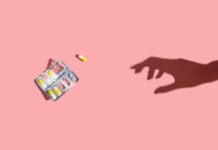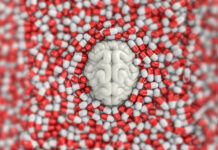Can Madness Save the World? Where R.D. Laing—and Star Trek—Meet
What if the only choice we can really make, and trust, is the irrational, even mad, choice to love? What would saving the world look like then?
Putting JAMA Psychiatry and MIA to the Genetic Test
We can assess whether Mad in America readers or JAMA Psychiatry readers are being provided with the most robust scientific literature.
Animal Theory of Emotion: Emotion Is Not a Disorder
Too many people see themselves as having mental disorders when what they have is emotion, and in some cases, a great deal of it.
Antidepressant Use in Pregnancy Harms Child Development, Untreated Maternal Depression Shows Benefit
In this new study, exposure to maternal anxiety in utero also harmed child development.
Interpersonal Caring as an Act of Resistance Among Socially Marginalized
Some of the most marginalized and stigmatized people in a community are those with psychiatric diagnoses and those who are HIV positive.
In Defense of Open Dialogue Research
One of the original Open Dialogue researchers responds to a paper presenting a prejudiced and selective review of the scientific literature.
Deprescribing Psychiatric Drugs to Reduce Harms and Empower Patients: Interview with Psychiatrist Swapnil Gupta
Ayurdhi Dhar interviews psychiatrist Swapnil Gupta on psychiatric drug discontinuation, drug cocktail risks, patient choice, and the need for trust and transparency.
Never Waste a Good Depression: Family Therapy Challenges the Seductive Shortcut of Psychiatric Drugs
The widespread use of psychiatric drugs reduces important conversations about the problems of being human while limiting our options for problem-solving.
Study Highlights Difficulty of Antipsychotic Withdrawal
New research finds insomnia, anxiety, and depression are common symptoms of antipsychotic withdrawal, highlighting difficulties of discontinuation.
Post-Acute Withdrawal Syndrome (PAWS): How the Last Step to Recovery Became the Final Step...
How persistent, unbearable suffering, due to prolonged withdrawal from antipsychotics prescribed as a sleeping medication, led to euthanasia.
Engaging Voices, Part 1: Validating The Arrival of My Wife’s First ‘Alters’
Sam Ruck shares his third excerpt from his book Healing Companions, which describes his life with, and love for, his wife and her “alters.”
How Psychiatrists Responded to the Launch of Our New ECT Survey
Amid mostly rude and unprofessional jibes, there were also some legitimate points, which are addressed here.
Is Madness an Evolved Signal? Justin Garson on Strategy Versus Dysfunction
Philosopher Justin Garson discusses the potential benefit of looking at madness not as disease or defect, but as a designed feature.
The Integration of Peer Support Principles in Community Mental Health Policy and Practice: Toward...
Though there are obstacles, integration of peer support is already underway thanks to change agents in the mental health system.
Common Side Effects Leading to Antidepressant Discontinuation
New research finds the negative drug effects most commonly associated with initiating antidepressant discontinuation are anxiety, suicidal thoughts, vomiting, and rashes.
Depression: Psychiatry’s Discredited Theories and Drugs Versus a Sane Model and Approach
Psychiatry’s depression outcomes are poor because its bio-chemical-electrical treatments are based on a depression model that science has flushed down the toilet.
My Lived Experience Helps Others Heal: Working with Families on the Path to Recovery
If one person is struggling, everyone in the family is struggling. Families need support.
Benzodiazepines in Canada: Is a Withdrawal Crisis Looming?
Why are benzos, for short-term use only, being doled out, in some cases, for years? Nicole Lamberson and Mark Horowitz weigh in.
‘It Was a Joint Effort’: Deborah Kasdan on Bringing Her Late Sister’s Story to...
Author Deborah Kasdan discusses her memoir of her late sister, "Roll Back The World."
The Psychiatric Peddlers in Your Schools
Educators and parents must equip children with the necessary tools to meet the normal problems of childhood that psychiatry attempts to address.
Antidepressant Use Linked to Sexual Dysfunction, Why Aren’t Prescribers Discussing It?
Research sheds light on the impact of antidepressants on sexual dysfunction, emphasizing the need for patient-physician communication.
Antidepressant Use Tightly Correlates with Increased Suicide Rates
While the study can’t confirm causality, it does contradict the notion that antidepressants reduce suicide at the population level.
“A Dangerous Substance”: The Impact of Social Media on Youth Mental Health
This is what social media does, she says. It draws people in. It hurts people. In the worst cases, it kills people.
Grief, Bereavement, Public Health, and Me
In public health, we talk about death. But we don’t talk about grief or bereavement. We don’t study the hole left behind in the family system or social sphere.
Reflections on the Silicon Valley Teen Suicides-by-Train: Fifteen Years Later
A psychiatrist and mom reflects on teen suicide clusters in Palo Alto and discusses alternative ways to address adolescent mental health.

































